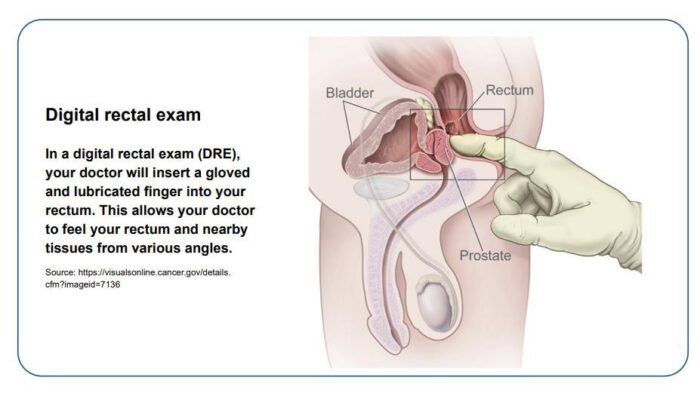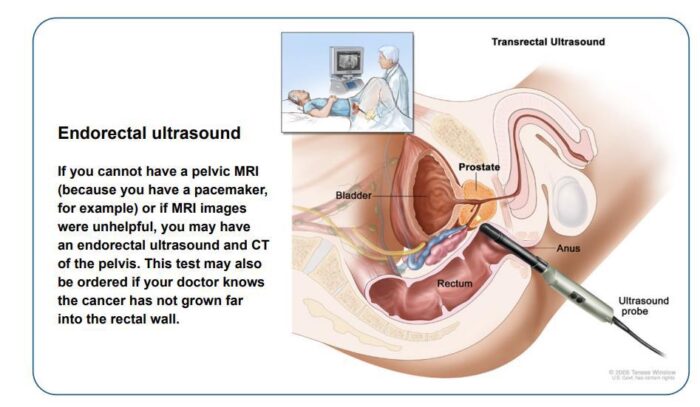Table of Contents
Introduction : Rectal Cancer Treatment
Rectal cancer is a significant health concern affecting individuals worldwide. Understanding its causes, risk factors, detection methods, and treatment options is crucial for effective management and prevention.
Overview
What is Rectal Cancer?
Rectal cancer occurs when abnormal cells grow uncontrollably in the rectum, the last part of the large intestine. Over time, these cells can form tumors and spread to other parts of the body.

How Does Rectal Cancer Develop?
Rectal cancer typically develops from precancerous growths called polyps. These polyps can become cancerous over time if not detected and removed.
Causes and Risk Factors
Age
Rectal cancer is more common in older adults, with the risk increasing significantly after the age of 50.
Family History
Individuals with a family history of colorectal cancer or certain genetic syndromes are at a higher risk of developing rectal cancer.
Inflammatory Bowel Disease (IBD)
Conditions like Crohn’s disease and ulcerative colitis increase the risk of developing rectal cancer.
Lifestyle Factors
Unhealthy lifestyle habits such as a diet high in red or processed meats, lack of physical activity, smoking, and excessive alcohol consumption can contribute to the development of rectal cancer
Symptoms and Detection
Common Symptoms
Symptoms of rectal cancer may include changes in bowel habits, blood in the stool, abdominal discomfort, unexplained weight loss, and fatigue.
Diagnostic Tests
Various tests, including physical examination, colonoscopy, biopsy, and imaging tests like CT scans and MRIs, are used to detect and diagnose rectal cancer.
Diagnosis : Rectal Cancer Diagnosis in Hyderabad
Physical Examination
Doctors may perform a digital rectal exam to check for any abnormalities in the rectum or nearby tissues.

Colonoscopy : Colonoscopy in Hyderabad
A colonoscopy involves inserting a flexible tube with a camera into the rectum and colon to examine the lining for polyps or tumors.
Biopsy
During a biopsy, a small sample of tissue is taken from the rectal tumor and examined under a microscope to determine if cancer is present.
Imaging Tests
Imaging tests like CT scans, MRIs, and PET scans can provide detailed images of the rectum and surrounding tissues to assess the extent of the cancer.


Stages of rectal Cancer
Rectal cancer is staged based on how far it has spread from the rectum to other parts of the body. Simplified stages include:
Stage 0: Cancer is only in the inner lining of the rectum
Stage I: Cancer has grown into the inner layers of the rectum but has not spread beyond.
Stage II: Cancer has spread into nearby tissues or organs but not to lymph nodes.
Stage III: Cancer has spread to nearby lymph nodes but not to distant organs.
Stage IV: Cancer has spread to distant organs, such as the liver or lungs, or to other parts of the body.
Treatment Options : Rectal Cancer Treatment in Hyderabad
Surgery : Rectal Cancer Surgery in Hyderabad
Surgery is often the primary treatment for rectal cancer and may involve traditional open surgery or minimally invasive techniques such as laparoscopic or robotic-assisted surgery.


Traditional Open Surgery
In traditional open surgery, a large incision is made in the abdomen to remove the tumor and surrounding tissue.
Minimally Invasive Surgery for Rectal Cancer in Hyderabad
Minimally invasive surgeries, including laparoscopic and robotic-assisted procedures, use smaller incisions and specialized instruments to remove the tumor with less damage to surrounding tissues. Let’s consult the best MIS surgeon for rectal cancer in Hyderabad.
Specialized Procedures
Specialized procedures like Transanal Minimally Invasive Surgery (TAMIS) and Transanal Endoscopic Microsurgery (TEMS) are used to remove rectal tumors through the anus, avoiding the need for abdominal incisions.
Chemotherapy and Radiation Therapy
In addition to surgery, treatment for rectal cancer may include chemotherapy to kill cancer cells or radiation therapy to shrink the tumor before surgery.
Prevention
Healthy Lifestyle Choices
Adopting a healthy lifestyle, including a balanced diet, regular exercise, avoiding smoking, and moderating alcohol intake, can help reduce the risk of developing rectal cancer.
Dietary Recommendations
A diet rich in fruits, vegetables, and whole grains and low in red or processed meats can help maintain colon health and lower the risk of rectal cancer.
Best Rectal Cancer Treatment in Hyderabad
It’s not easy to receive a rectal cancer diagnosis, but it’s vital to know that there are choices for effective rectal cancer treatment in Hyderabad, especially if the illness is discovered early. Screenings for early detection and prompt intervention can greatly enhance life expectancy and results.
You are not alone in this journey. If you or someone you know has received a rectal cancer diagnosis, reach out to Dr. Pavan Kumar Jonnada, the best oncosurgeon for rectal cancer treatment in Hyderabad, who can help you get back on your path. To guarantee the best possible results for patients, his team is committed to offering comprehensive care together with the newest developments in medical technology.
Dr. Jonnada offers a range of state-of-the-art rectal cancer treatment in Hyderabad that are tailored to each patient’s unique needs and situation. Modern techniques, like minimally invasive laparoscopic procedures and robotic rectal cancer surgery in Hyderabad, are employed by Dr. Jonnada to optimise results with the least amount of discomfort and recuperation time.
With his extensive experience and specialized training in robotic rectal cancer surgery in Hyderabad, Dr. Jonnada is widely recognized as the best oncologist for rectal cancer treatment in Hyderabad. His compassionate approach and commitment to excellence make him the top choice for patients seeking the best rectal cancer treatment in Hyderabad.
Take the First Step Towards Rectal Cancer Treatment in Hyderabad.

Schedule Your Appointment Online Now!
available at
Cancer Clinic
Vansh Clinics & Diagnostics,
212, Kokapet Terminal, Gandipet Road,
Kokapet, Hyderabad
Medicover Cancer Institute
Hitech City, Hyderabad

